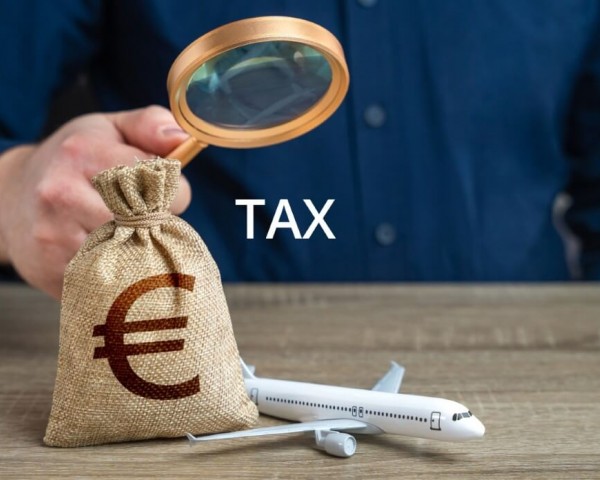Air travel within Germany and across Europe can be surprisingly expensive, according to a recent ADAC (The German Automobile Club) study, citing government taxes and fees. Their review of about 120 routes found that passengers taking off from big German airports, such as Frankfurt and Munich, encounter some of the highest expenses around. This, along with not much competition and spotty pricing, poses real issues for those wanting to travel and for the airlines themselves.
High Taxes and Fees
Germany applies high taxes on plane tickets, especially for domestic trips. Frankfurt seems to take the lead, with travelers paying around €74 just in taxes for a local flight – the most in the country. The national average is closer to €52, while Cologne/Bonn appears to be the least expensive at €36. When it comes to flying around Europe, Frankfurt is again one of the priciest, with taxes and fees around €59, only beaten by Amsterdam at €63. Other airports in Germany, like Munich (€49), Dusseldorf (€46), and Hanover (€42), also rank high for costs when you compare them to others in Europe.
These costs really add to the price of a ticket, and this makes leaving from Germany more costly for travelers. The ADAC suggests a change in policy, pressing officials to change the air travel tax to specifically support aviation fuels that are sustainable; this might strengthen Germany’s position as a global travel hub.
Limited Domestic Options and Lufthansa Dominance
ADAC’s research also showed a lack of competition in Germany when flying within the country. Roughly 87% of these routes are managed by the Lufthansa Group, including its Eurowings branch, which can hold back competition and doesn’t give people many choices. While most internal flights, around 73%, are direct, eight routes need transfers, and these can be expensive. Flights involving transfers average €300, whereas direct ones cost around €76, marking a big price difference for travelers.
On the other hand, flights within Europe tend to be more varied, with 92% offering direct routes and several airlines vying for the same customers. This allows for more price comparison and makes it more affordable to fly within Europe.
Price Volatility and Transparency Issues
The analysis highlights how prices can swing a lot in short time frames. Take a Lufthansa flight from Frankfurt to Berlin – its cost shot up from €86 to over €430 in just three months— a huge rise. Other routes saw prices double or even triple, showing how hard it is to plan trips. What makes this harder is that ADAC found many airlines don’t always show taxes and fees clearly, leaving customers unsure about what tickets really cost.
To fix this, ADAC wants better transparency, calling on airlines to show all the costs in a clear way. They also want it made clear what fees can be refunded should airlines not follow the rules, making sure travelers are informed and protected.
Passenger Rights Under Threat
As the EU looks at updating its rules on air passenger rights, the ADAC isn’t happy with changes that may reduce the protections travelers have. Specifically, they disagree with ideas to make the waiting time longer before you can ask for compensation, stretching it from three to five hours for shorter flights and from nine to twelve hours for longer ones. The group feels that these kinds of changes could weaken passenger rights at a time when trusting the aviation industry is already a challenge.
A Call for Reform
Air travel in Germany struggles with high prices caused by taxes, along with not a lot of competition, especially for local trips. ADAC’s findings emphasize the need for changes that make things more affordable and open, all while encouraging sustainability. With travelers dealing with inconsistent prices and few options, the demand for a more competitive airline market is becoming more pressing. Without moves being made, the situation for travelers will only get harder. Germany is facing a potential decline as a central European travel center, and passengers may end up dealing with the consequences of what is becoming an ever more expensive system.

